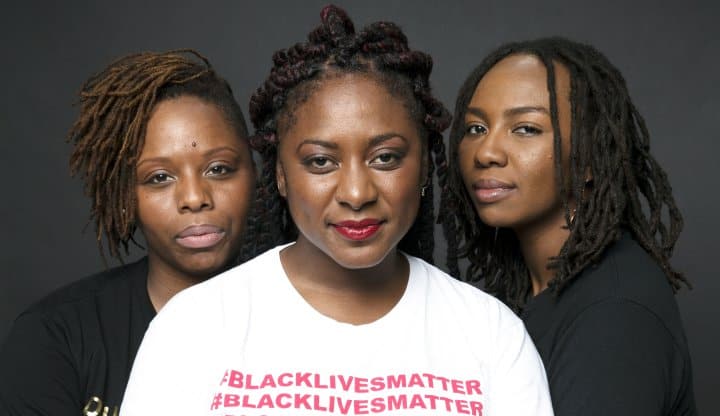In the wake of the 2020 racial justice protests following George Floyd’s death, the Black Lives Matter (BLM) movement surged to prominence, amassing over $90 million in donations from supporters worldwide.
These funds were intended to fuel activism, community support, and systemic change. But five years later, a federal investigation by the U.S. Department of Justice (DOJ) is unraveling a darker narrative: allegations that BLM leaders siphoned off millions for personal gain, leaving donors betrayed and local chapters starved.
As of late October 2025, the probe—launched under the Trump administration—marks a potential turning point, raising questions about accountability, racial justice philanthropy, and whether criminal charges will finally stick.
The investigation, first reported by the Associated Press on October 30, 2025, centers on the Black Lives Matter Global Network Foundation (BLMGNF), the fiscal arm of the decentralized movement. According to multiple sources familiar with the matter, DOJ prosecutors are scrutinizing whether executives defrauded contributors by misusing donations on luxury purchases, real estate deals, and opaque financial maneuvers. “This isn’t just sloppy accounting—it’s about trust shattered,” one anonymous source told CNN. The probe stems from a cascade of prior civil lawsuits, whistleblower complaints, and state-level inquiries that have dogged BLM since 2021.
To understand the scale, rewind to summer 2020. As protests erupted in cities across America, BLMGNF’s coffers swelled. By the end of that year, the foundation reported raising $90 million, with assets peaking at $28 million as of June 2024, per its latest tax filings. Donors, moved by calls for police reform and Black empowerment, contributed via platforms like ActBlue and the foundation’s website.
Yet, transparency issues emerged almost immediately. In 2022, a bombshell New York Magazine exposé revealed that executives, including co-founder Patrisse Cullors, had funneled $3.2 million into a real estate portfolio, including a $6 million Southern California property dubbed the “Black Joy House.” Cullors, who resigned amid the backlash, defended the purchase as a creative hub for artists, but critics decried it as a misuse of charitable funds.
The fraud allegations escalated with a September 2022 lawsuit filed by BLM Grassroots, a coalition of local chapters, against BLMGNF. The suit accused former executive Shalomyah Bowers of “going rogue” and stealing over $10 million, including transfers to personal accounts and unaccounted expenses. “While BLM leaders and movement workers were on the street risking their lives,” the complaint read, “Bowers was busy stealing from them.”
Though a California judge dismissed the case in November 2023 for lack of standing, it ignited IRS audits and state attorney general reviews in California and New York. These probes uncovered failures to distribute funds to chapters—some received nothing despite promises—and lavish spending on travel, consulting fees, and even a $1.4 million payment to a firm run by Cullors’ brother.
Enter the DOJ in 2025. The federal investigation, handled by the Criminal Division’s Public Integrity Section, builds on these foundations but escalates to potential wire fraud and money laundering charges under 18 U.S.C. § 1343 and § 1956. Prosecutors are poring over bank records, emails, and donor agreements, focusing on whether leaders knowingly misrepresented how funds would be used.
A key thread: the foundation’s rapid dissolution of its board in 2022 amid infighting, which delayed financial disclosures. Recent convictions of peripheral figures bolster the case— in October 2025, a North Dakota BLM leader pleaded guilty to stealing $57,000 in grants, while a 2024 Ohio case saw activist Sir Maejor Page sentenced to prison for wire fraud in a sham charity scheme. The FBI has vowed to “aggressively investigate” such fraud, per Cleveland Special Agent in Charge Greg Nelsen.
BLMGNF, now rebranded and led by interim executives, vehemently denies wrongdoing. In a statement to AP, the organization called the probe “politically motivated” and reaffirmed its commitment to audited financials. “We’ve always been transparent about our mission,” it said, pointing to grants disbursed to over 30 chapters and anti-violence programs. Supporters, including some 2020 donors, argue the scrutiny unfairly targets a movement born from grassroots urgency, potentially chilling activism. On X (formerly Twitter), reactions range from conservative cheers—“Finally, accountability for the grift,” tweeted @InsiderWire—to progressive defenses decrying it as “racist payback” under Trump.
So, are criminal penalties on the horizon? Legal experts are divided, but the odds tilt toward indictments if evidence holds. Wire fraud carries up to 20 years in prison and $250,000 fines per count, plus restitution—potentially totaling tens of millions if the $10–$90 million range is proven. “DOJ doesn’t open these probes lightly,” says former prosecutor Barbara McQuade, author of Attack from Within.
“With prior convictions setting precedent and documents showing intent, charges could drop by mid-2026.” However, challenges loom: the decentralized BLM structure muddies liability, statutes of limitations (five years for fraud) may bar older claims, and political heat could influence outcomes. A 2023 dismissal of a donor lawsuit in California highlighted proof hurdles—plaintiffs must show direct harm and deceit.
This saga underscores a broader reckoning in nonprofit accountability. Movements like BLM, fueled by viral outrage, often prioritize speed over structure, inviting exploitation. As the DOJ digs deeper, the fallout could reshape racial justice funding: stricter IRS rules, donor wariness, or even class-action suits. For now, the probe serves as a stark reminder—philanthropy demands vigilance, lest good intentions pave a road to fraud.










Share:
SNAP Showdown: Judge Forces Trump’s Hand on Food Stamps Amid Shutdown Standoff
Danielle Collins: From Court Queen to Trad Wife Wannabe – A Late-Game Pivot with Strings Attached